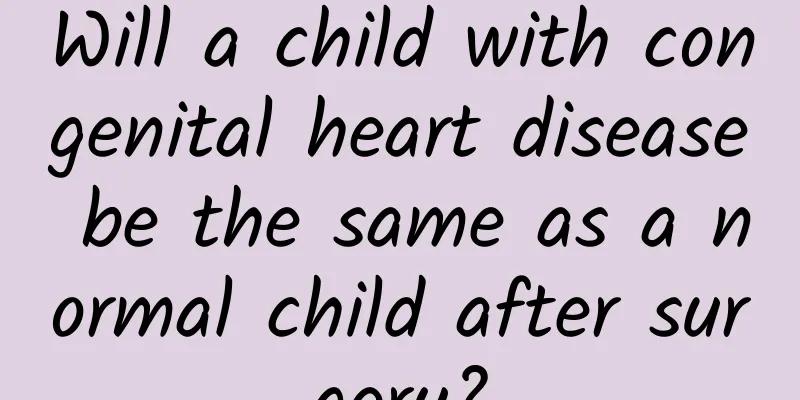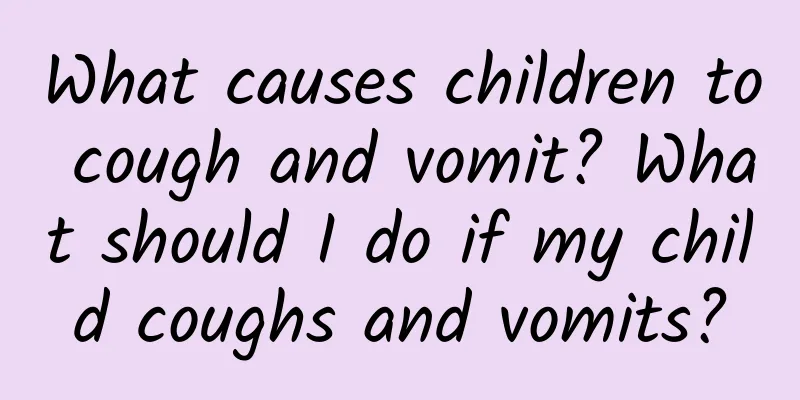Will a child with congenital heart disease be the same as a normal child after surgery?

|
Whether a child with congenital heart disease can live like a normal child after surgery depends on the type of surgery, the severity of the condition, and the postoperative recovery. Most children who have undergone surgery can lead a nearly normal life, but some children may still require long-term follow-up and need to pay attention to possible complications after surgery. 1. Recovery after surgery Surgery for congenital heart disease is usually divided into restorative surgery and palliative surgery. Restorative surgery can completely solve the problem of heart structure, and most of these children can live and grow like normal children after surgery. However, for children with severe diseases, such as complex cyanotic heart disease, multiple surgeries may be required, and postoperative recovery is more difficult, and there may be a decline in heart function or lack of exercise endurance. Follow-up should be scheduled in the early postoperative period to observe the recovery of heart function. 2Possible complications after surgery Some children may have arrhythmias, blood circulation disorders, pulmonary hypertension and other problems after surgery, which require medication control. For example, beta-blockers such as metoprolol can be used to improve heart rate, and anticoagulants such as warfarin may be needed to prevent thrombosis. In some severe cases, further interventional treatment may be required. For example, some children who have undergone valve surgery may need another valve replacement surgery in the future. 3. Long-term follow-up and health care after surgery Although surgery improves heart structural problems, long-term cardiovascular health maintenance is important. Doctors usually recommend that patients undergo follow-up visits such as cardiac ultrasound every year or every two years. Some children may need to limit strenuous exercise, such as prohibiting projects that put a high load on the cardiopulmonary system. Low- and medium-intensity exercises such as jogging and swimming are more recommended. After surgery, you should also pay attention to avoiding infective endocarditis in your daily life, maintain good oral hygiene, or use antibiotics recommended by your doctor to prevent infection when necessary. 4Psychological and growth support Some children may have psychological trauma or developmental problems, so they need extra care from their parents and teachers. Some children need additional psychological counseling to reduce their sense of denial or inferiority. It is also recommended that nutritionists help develop a postoperative diet. For example, iron and folic acid supplements can help improve anemia and promote growth and development. Although many children can gradually return to a near-normal life after congenital heart surgery, regular follow-up, paying attention to physical changes, and providing psychological support are key. Parents should maintain close communication with doctors to help their children grow up healthily. |
<<: What is the cause of Hirschsprung's disease?
>>: What are the symptoms of congenital megacolon in newborns?
Recommend
Experts explain how to prevent Kawasaki disease
Each of us should take preventive measures agains...
What medicine can cure pneumonia in children?
Now Western medicine has penetrated into our live...
What should I do if my child keeps coughing? How should I treat my child's constant cough?
Since children's throat and lung functions ar...
Will congenital heart disease recur after surgery in children?
Congenital heart disease in children usually has ...
What are the causes of acute laryngitis in children?
Acute laryngitis in children is more common in wi...
What to do after pneumonia in children
Are you still looking for medical advice for your...
What are the principles of treatment for patent ductus arteriosus in newborns?
The treatment principles for patent ductus arteri...
What are the Chinese patent medicines for children with cold and runny nose?
Children with runny nose due to cold can choose C...
Regular examination methods for pneumonia in children
Diseases such as neonatal pneumonia may endanger ...
Transmission and prevention of hand, foot and mouth disease
The main transmission routes of hand, foot and mo...
What are the massage techniques for children with cold and cough?
Pepper massage for children with cold and cough c...
What is the method commonly used to check for patent ductus arteriosus?
What are the commonly used methods to check for p...
What is the standard jaundice value? How long does it take for neonatal jaundice to appear?
Medically, jaundice in babies under one month old...
How to treat a five-month-old baby's cough and runny nose? What should I do if my five-month-old baby has a cough and runny nose?
A five-month-old baby with a cough and runny nose...
Is hand, foot and mouth disease serious? Is hand, foot and mouth disease easy to treat?
Spring is the season when many infectious disease...









